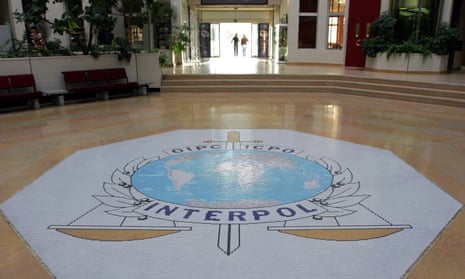Interpol has voted to admit Palestine as a full member, dealing a significant diplomatic blow to Israel, which has strenuously lobbied against Palestinian admission.
In a secret vote of representatives of the international police organisation’s members in China, Palestinian membership was approved by 75 to 24 votes, with 34 abstentions – exceeding the two-thirds requirement of yes to no votes.
“The State of Palestine and the Solomon Islands are now Interpol member countries,” the organisation tweeted after the ballot.
Set up almost a century ago, Interpol was designed to help countries share police intelligence and cooperate against crime that crosses international borders, including terrorism and human trafficking,. It now has 192 international members.
It is perhaps best known to the wider public for its “red notice” system, which issues requests to locate and provisionally arrest individuals pending extradition.
The Palestinian bid was part of a series of efforts to push for membership of international institutions and thereby advance the goal of statehood.
Palestine gained observer status at the United Nations in 2012 and since then has joined more than 50 international organisations and agreements, including the international criminal court and the United Nations heritage body, Unesco.
Israel campaigned to block the Interpol move and made a series of procedural moves in an attempt to prevent the issue coming to a vote.
Although Israel opposes all moves by Palestine to join international bodies – arguing that it is not a state – the issue of Interpol has been particularly sensitive.
After Israel blocked the last Palestinian attempt to join Interpol – at last year’s annual general meeting in Indonesia – the Israeli prime minister, Benjamin Netanyahu, said his country’s diplomatic efforts had secured a major victory.
The Israeli foreign ministry made no immediate comment on Wednesday’s decision.
Among arguments deployed against Palestinian membership by Israel’s rightwing government were that Palestine might try and use its new status in pursuit of arrest warrants for top Israeli officials – despite the fact that Interpol cannot issue arrest warrants – or misuse confidential information on terrorism issues.
Interpol’s constitution also insists on its political neutrality, forbidding it from from intervening in political issues.
The Palestinian foreign minister, Riyad al-Maliki, said in a statement: “This victory was made possible because of the principled position of the majority of Interpol members.”
In 2012, the UN general assembly upgraded the Palestinian Authority’s observer status at the United Nations to “non-member state” from “entity”, like the Vatican.
The step fell short of full UN membership, but it had important legal implications in allowing the Palestinians access to international bodies, should they choose to join.
